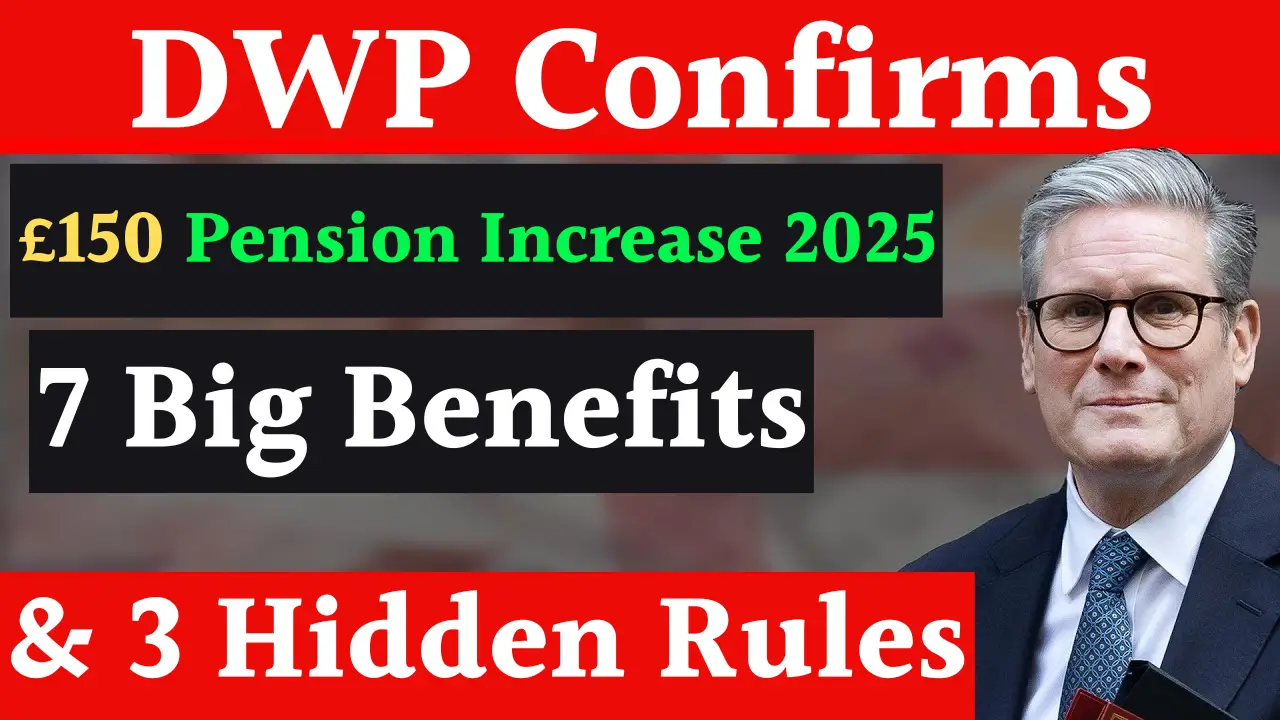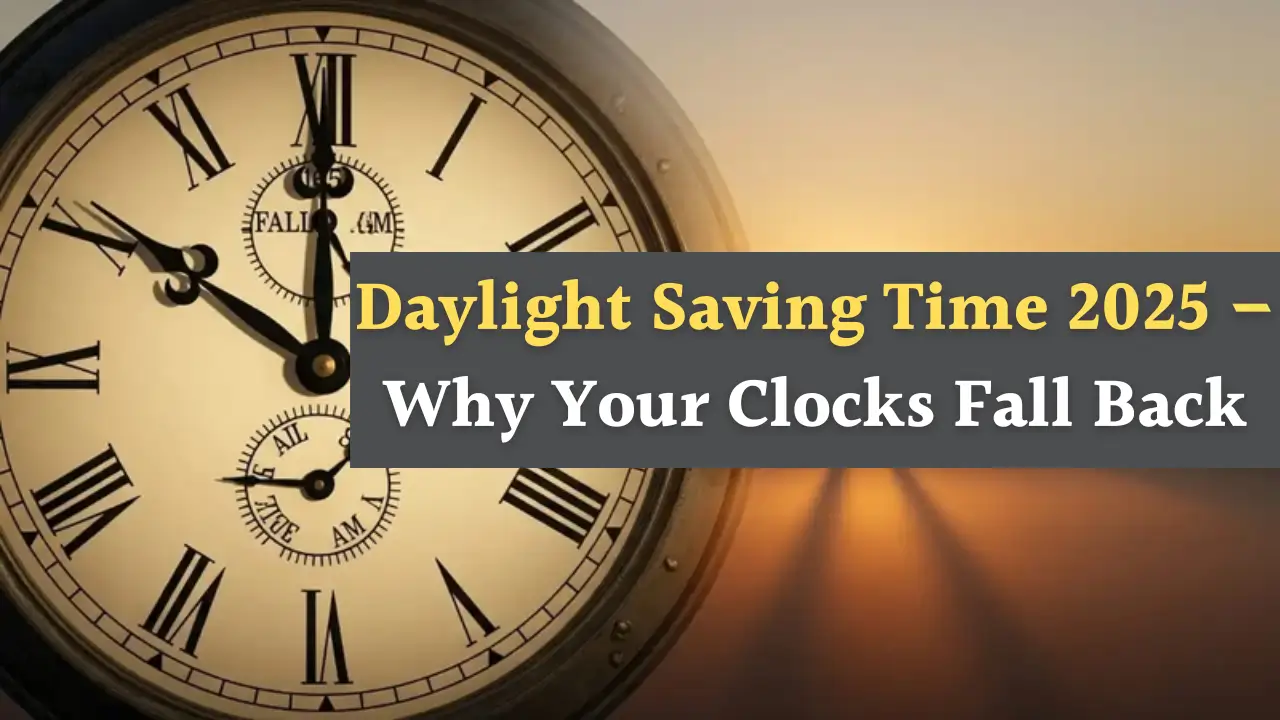DWP Confirms £150 Pension Increase 2025: The Department for Work and Pensions (DWP) has officially confirmed that millions of pensioners aged over 60 will benefit from a £150 pension boost in 2025. This move comes amid ongoing concerns about the rising cost of living, with food prices, energy bills, and everyday essentials putting additional pressure on older households.
The announcement has been widely welcomed as a way to provide much‑needed financial relief for UK seniors while reinforcing the government’s commitment to supporting vulnerable groups through economic uncertainty.
Why the Pension Increase Was Announced
The UK has witnessed persistent inflation in recent years, which has disproportionately impacted retirees who depend on fixed incomes. Many pensioners over the age of 60 rely heavily on their state pension, and for those without significant private savings, rising household expenses have been particularly hard to manage.
The £150 pension increase announced by the DWP for 2025 is part of a broader effort to adjust state benefits to reflect current price conditions. It also follows public pressure from pensioner advocacy organisations who have been calling for stronger financial safeguards to ensure that seniors can maintain a dignified standard of living.
Who Will Benefit from the Increase
The confirmed increase applies to individuals aged over 60 who are receiving the state pension. It is designed as a universal adjustment, meaning that all eligible pensioners in this age group will automatically see the £150 rise added to their pension income from 2025.
Importantly, the boost will be provided on top of the state pension under the triple lock mechanism, which ensures that pension payments rise in line with whichever is greater: inflation, average wage growth, or a minimum of 2.5%.
This means retirees not only benefit from the new £150 flat increase but also from the annual triple lock adjustment, protecting their finances against the effects of inflation.
How the £150 Increase Will Work
The £150 boost is a one‑off uplift specifically targeted at those over the age of 60 and will complement the existing annual state pension payments. It will be automatically distributed to qualifying pensioners through their usual pension payment method, with no additional application process required.
The increase is expected to be reflected in the April 2025 state pension payments, aligning with the start of the new financial year. For many households, this timing is crucial, as winter heating bills often leave pensioners struggling to balance budgets in the early months of each year.
Pension Rates for 2025
The following table provides a clear breakdown of how the new £150 increase will affect UK pensioners in 2025.
| Pension Type | 2024/25 Weekly Rate | 2025 Adjustment (Triple Lock & £150) | New Weekly Rate (2025/26) | Annual Pension (Approx.) |
|---|---|---|---|---|
| New State Pension (full rate) | £221.20 | +£11.00 + £150 annual | £232.20 | £12,150 |
| Basic State Pension (pre-2016) | £169.50 | +£8.50 + £150 annual | £178.00 | £9,565 |
| Additional £150 Pension Boost | N/A | Flat £150 increase | Applied separately | +£150 per year |
The £150 boost will appear as an added annual increase in addition to the regular weekly payments determined by the triple lock uprating. Together, these adjustments represent the most substantial rise in pension income seen for several years.
Wider Impact on UK Seniors
For many seniors, even modest increases in state pension income can have a major impact. The current cost‑of‑living pressures mean that older households are often forced to make difficult choices between food, heating, and essentials. The £150 increase, while not transformative on its own, offers extra breathing room to pensioners already struggling with their limited budgets.
Additionally, the pension increase comes at a time when social support services and local councils have reported growing demand for financial relief among older residents. Improved pension income may help alleviate some of this pressure while also reducing reliance on other welfare schemes.
Link to Other DWP Support
The DWP has also indicated that the £150 increase is part of a broader framework aimed at supporting older citizens. Alongside the annual pension adjustments, many seniors are also eligible for additional entitlements, such as:
- Winter Fuel Payments
- Cold Weather Payments
- Pension Credit top‑ups
- Council Tax reductions
By combining these targeted measures with the extra £150 pension boost, the DWP aims to present a more comprehensive safety net for pensioners, ensuring that no one is left behind during the cost‑of‑living crisis.
Potential Criticisms and Challenges
Despite the positive reception, some campaigners argue that the £150 increase, though welcome, still falls short of fully addressing the financial challenges facing retirees. Rising rents, escalating food prices, and uncertainty over energy bills continue to strain older households.
Critics also point to the fact that younger pensioners, who may still have mortgages to pay off, face particularly large expenses that are not always accounted for in universal flat payments. Others argue that indexing pensions more strongly to inflation would achieve longer‑term protection than one‑off annual boosts.
The government, however, insists that the combination of the £150 increase and the triple lock will provide a fair balance between affordability for taxpayers and protection for seniors.
Long‑Term Outlook for UK Pensions
Looking ahead, the debate around pensions in the UK is likely to intensify. With life expectancy increasing and the proportion of older citizens growing, questions remain about the sustainability of the state pension system.
The £150 increase in 2025 is a short‑term relief measure, but discussions are expected to continue about future reforms to secure pension adequacy and fairness for all generations. The triple lock remains a cornerstone of pension policy, but its longevity is often questioned in political debates due to the financial burden it places on public finances.
FAQs
1. Who is eligible for the £150 pension increase in 2025?
All UK pensioners aged over 60 receiving the state pension will be eligible for the additional £150 payment.
2. When will the pension increase be paid?
The increase will be applied from April 2025, aligning with the start of the new financial year.
3. Do pensioners need to apply for the increase?
No, the boost will be applied automatically to all eligible pension recipients.
4. Will the £150 increase affect Pension Credit or other benefits?
The DWP has indicated that the payment will be treated separately and should not reduce eligibility for other means‑tested benefits.
5. Is this a one‑off payment or a permanent rise?
The £150 is a one‑off increase for 2025 on top of the triple lock uprating, but the government may consider future increases depending on economic conditions.
Conclusion
The DWP’s confirmation of a £150 pension increase for over‑60s in 2025 marks a significant step towards easing the financial pressures faced by retirees across the UK. Coupled with the triple lock, this boost demonstrates the government’s recognition of the ongoing challenges caused by the rising cost of living. While some argue it does not go far enough, the increase will nevertheless provide welcome relief for millions of pensioners, helping them better manage household costs and maintain a more secure quality of life.

















